View all Standards for Alberta, Canada
11 use pitch to effect quality of voice production

UNIT
Part of the Drama One Curriculum
Voice
by Karen Loftus
This unit focuses specifically on the technical aspects of vocal production. By understanding how voice is created, students will be more aware of how to improve their vocal production. Students will explore posture and breathing exercises, as well as how to use the diaphragm, projection, and articulation. The final project will test students’ ability to properly project and articulate a joke across a large space.
Read More
about Voice
Read Less
about Voice
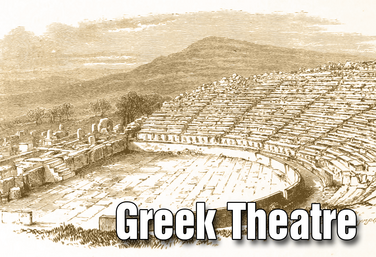
UNIT
Part of the Drama One Curriculum
Ancient Greek Theatre
by Karen Loftus
This unit on Ancient Greek theatre focuses on the function of the chorus, the choral ode, and the details of the theatre space. It touches on plays and playwrights of the era, culminating in a final project of a modern version of Medea that includes a choral ode.
Read More
about Ancient Greek Theatre
Read Less
about Ancient Greek Theatre
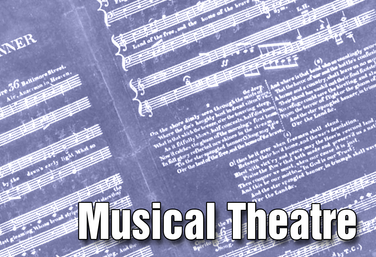
UNIT
Musical Theatre
by Anna Porter
Musical Theatre has two components that separate it from straight plays: song and dance. This unit gives students the opportunity to try out both. In musical theatre, music signifies heightened emotion. We can’t express ourselves with just words, we need music (and through extension, song and dance) to take it further.
This unit includes three lesson plans:
1. Acting the Song - “Musical Tactics”
2. Acting the Song - “Textual Analysis”
3. Introduction to Dance
A solo performance assignment is also included, and the unit includes assessment tools - rubrics, reflections, and self-evaluations.
Read More
about Musical Theatre
Read Less
about Musical Theatre
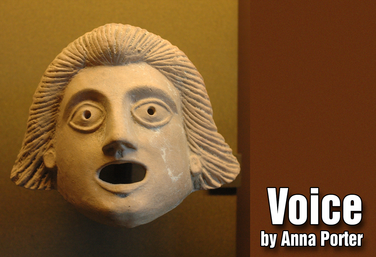
UNIT
Voice
by Anna Porter
In this unit, students will be introduced to a key element of performance: the voice. Students will explore how to thoughtfully communicate character, story, and emotion vocally. Students will begin by exploring articulation so that they understand the importance of clearly communicating their words onstage. They will further build on this with the following lesson on the different vocal varieties of pitch, tone, rate, and volume.
The final lesson helps students explore vocal characterization as well as the details and layers that can bring that character to life vocally. This unit study of the voice culminates in a final puppet show where students are asked to bring a story and character to life by using vocal variety, articulation, and characterization.
Read More
about Voice
Read Less
about Voice
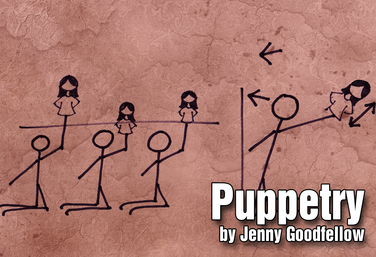
UNIT
Puppetry
by Jenny Goodfellow
This unit on Puppetry is designed for middle school and up, to introduce students to the material and get them comfortable with performing in a safe and low exposure environment.
This is a unit that builds to a culminating experience for your students. Each lesson is designed to explore techniques, provide opportunities for creative collaboration among your students, and give them opportunities to perform. Some of the lessons require materials to build or create puppets. Puppetry can be as easy as drawing a face on your finger for finger puppets, to actually purchasing your own finger puppets for students to use.
While the focus of this unit is puppetry, your students will explore other skills as well. There’s the obvious ones of creative thinking, teamwork, and problem solving. They are also going to explore storytelling, performing skills, and playwriting.
Read More
about Puppetry
Read Less
about Puppetry
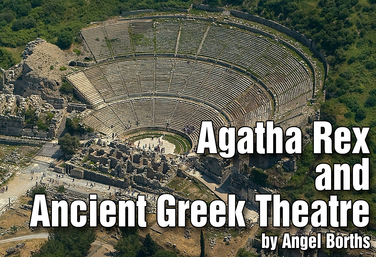
UNIT
Agatha Rex and Ancient Greek Theatre
by Angel Borths
Help…It’s all Greek to me! Join Angel Borths in this unit that uses a modern adaptation of the Ancient Greek play Antigone to introduce Middle School students to Ancient Greek Theatre.
Have your students read Percy Jackson and want to find out more about Ancient Greece? Then, this unit is for you. This unit is designed for middle and high school students and will take you through the basics of classical Greek theatre and pairs it with a modern adaptation of the story of Antigone called Agatha Rex by Lindsay Price. Students will learn vocabulary, design, and basic theory surrounding classical Greek theatre. Students will also enjoy the mask building component of this unit, as they learn to disappear into the character of a mask, like the first actors did on a Greek stage thousands of years ago.
The unit culminates in a scene performance with masks.
Read More
about Agatha Rex and Ancient Greek Theatre
Read Less
about Agatha Rex and Ancient Greek Theatre
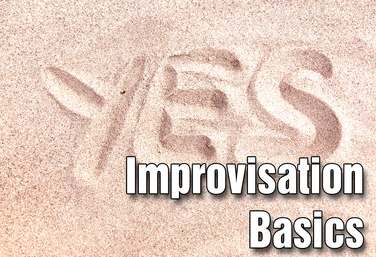
UNIT
Part of the Middle School Curriculum
Unit Two: Improvisation Basics
by Lindsay Johnson
In this unit, students will learn, practice and apply three important rules of improv: accepting and building on offers, quick thinking, and strong offers. For each step, they will work with the Improvisation Rubric by both giving and receiving feedback. Students will also start to practice techniques to improve their vocal clarity. The unit culminates in a performance assessment in which students will play an improv game in front of an audience.
Read More
about Unit Two: Improvisation Basics
Read Less
about Unit Two: Improvisation Basics
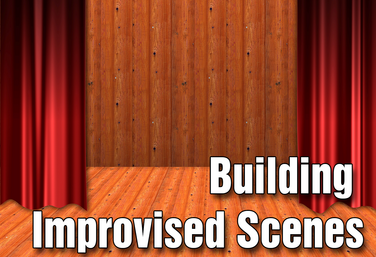
UNIT
Part of the Middle School Curriculum
Unit Three: Building Improvised Scenes
by Lindsay Johnson
Students will understand the basic building blocks of a scene: The Who (characters/ relationship), the Where (setting), and the What (conflict – objectives/tactics). They will learn how to use both verbal and nonverbal (pantomime) clues to communicate these scene details to an audience. They will continue to work on voice clarity, while also learning to open their body to an audience. The unit culminates in a performance assessment in which students work in pairs to improvise a scene.
Read More
about Unit Three: Building Improvised Scenes
Read Less
about Unit Three: Building Improvised Scenes
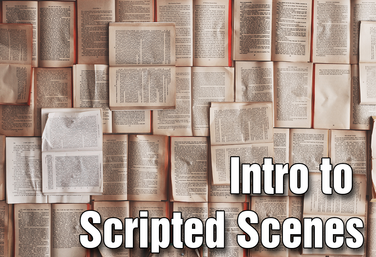
UNIT
Part of the Middle School Curriculum
Unit Four: Intro to Scripted Scenes
by Lindsay Johnson
Students will be introduced to the most basic of scripts: the contentless/open scene script. They will use their knowledge of character/relationships, setting, objective, and tactics to add content to a contentless scene. Students will also learn the basics of set design and blocking, and will begin using voice expression to communicate clearer characters. The unit culminates in a performance assessment in which students will work in pairs to add content to and perform a contentless scene.
Read More
about Unit Four: Intro to Scripted Scenes
Read Less
about Unit Four: Intro to Scripted Scenes

UNIT
Part of the Distance Learning Curriculum
Voice
by Lindsay Price and Karen Loftus
This unit focuses specifically on the technical aspects of vocal production. By understanding how voice is created, students will be more aware of how to improve their vocal production. Students will explore posture and breathing exercises, as well as how to use the diaphragm, projection, and articulation. The final project will test students’ abilities to properly project and articulate a joke at a distance from a microphone
Read More
about Voice
Read Less
about Voice
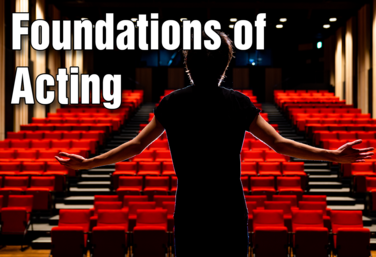
UNIT
Foundations of Acting
by Annie Dragoo
Students will demonstrate an understanding of the foundations of acting. At the end of the unit, students will be able to understand the value of making rich acting choices on stage.
This unit gives students an opportunity to explore and develop acting skills on a more advanced level, regardless of experience. They will explore skills, including voice, movement, emotional recall, memory, playing objectives, and character development culminating in a final scene.
Read More
about Foundations of Acting
Read Less
about Foundations of Acting

PD COURSE
Friendly Shakespeare
by Todd Espeland
Friendly Shakespeare teaches a simple and effective method of script analysis for Shakespeare. It uses punctuation and keywords in the text to help students understand the characters' needs, make specific acting choices, and get them on their feet immediately.
This is not dry, sitting in a classroom discussion. It’s physicalizing the text, focusing on the character’s needs and tactics (something every drama student should know full well) and bringing Shakespeare to life.
At the end of the class you will be able to demystify Shakespeare's text and understand how to help your actors make clear, active and emotionally connected choices in Shakespeare's plays.
Read More
about Friendly Shakespeare
Read Less
about Friendly Shakespeare
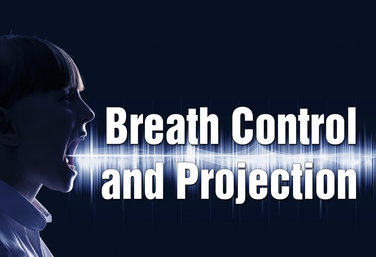
PD COURSE
Breath Control and Projection
by Elisabeth Oppelt
In this course, you will learn what breath control and projection are, how to breathe from your diaphragm and speak loudly without yelling, and how to teach these skills to your students. Led by teacher and singer Elisabeth Oppelt, this course will be helpful both in your teaching practices and in creating material to teach your students. This course also includes both formal and informal assessments for you to use in your classroom.
Read More
about Breath Control and Projection
Read Less
about Breath Control and Projection
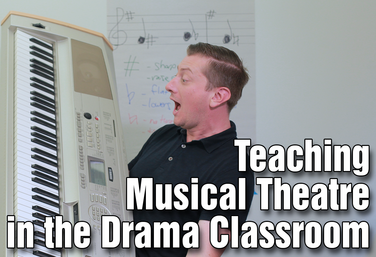
PD COURSE
Teaching Musical Theatre in the Drama Classroom
by Colin Oliver
Colin Oliver leads this introduction to teaching Musical Theatre in the Drama Classroom.
In this course, you will learn how to build musical theatre into your dramatic courses of study. “Why might you want to do that? Singing is scary! You want me to teach my students how to do it? I don’t even know how to do it.” This course approaches musical theatre preparation performance much as we would approach preparing a monologue in drama. If you use script analysis in monologue preparation in your class, you can teach musical theatre.
By the end of this course, you’ll have a great, full-body physical warm-up, a student-driven research assignment, character development exercises, a little bit of musical theory, and a performance assignment complete with assessment.
So, join us for teaching Musical Theatre in the Drama Classroom. It’s as easy as Do-Re-Mi!
Read More
about Teaching Musical Theatre in the Drama Classroom
Read Less
about Teaching Musical Theatre in the Drama Classroom
View all Standards for Alberta, Canada Standards Master List